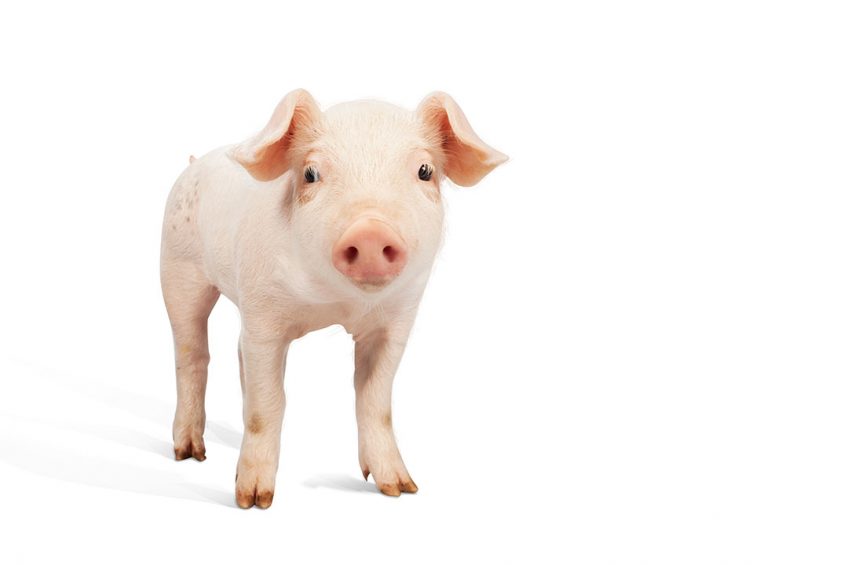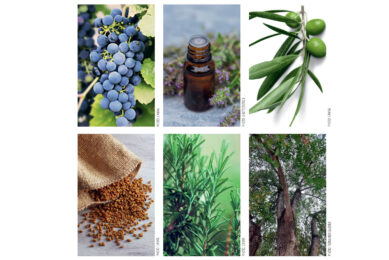Beneficial alternative to vitamin E

Yet again the international market faces shortage of vitamin E causing severe fluctuations in price. The situation has forced feed producers to look for alternatives. Research with weaned pigs has shown that natural polyphenols product can substitute up to 44% of vitamin E in feed beneficially.
Some fruits, berries and herbs have a high content of polyphenols that possess interesting properties in feed for animals. The selected polyphenols have the potential to partially replace vitamin E in animal feed. Animals are often fed vitamin E far beyond the minimum standard to ensure a sufficient level of antioxidants to counteract oxidative stress. It is therefore possible to replace that part of the vitamin E content in the feed above the minimum standard and even improve the results.
Replace vitamin E with Cabanin CSD
Several trials indicate that 50 to 100% of vitamin E content above 15 ppm can be replaced in complete feed. The general recommendation for new users of Cabanin CSD, is to start with 50% replacement above the minimum standard of vitamin E (15 ppm for piglets).
After a certain amount of personal experience has been built you may wish to increase the replacement to 100 % of vitamin E above minimum standard. With this ratio the stock of vitamin E can be extended in order to avoid vitamin E shortage and increasing prices (Figure 1).
Remarkable piglet trial results
A trial conducted at a university in Germany in 2017 confirms that Cabanin CSD can replace 50% of the vitamin E above the 15 ppm NRC standard requirements in feed for piglets beneficially. Further, Cabanin CSD can improve production results when used with 1000 ppm as performance enhancer. The purpose of the trial was to investigate the effects of the product as partial replacement of vitamin E and used in higher dosage as performance enhancer.
University trial setup
A total of 84, 25-day old piglets were divided into 4 groups, consisting of 7 replicates of 3 piglets each. The trial was conducted during a period of 6 weeks from weaning. Table 1 shows how the groups were fed with a basal weaning and starter diet with 50 % of vitamin E replaced by Cabanin CSD or with a performance enhancing level of Cabanin CSD. Figure 2 shows the feed conversion ratio (kg/kg) achieved in the piglet trial.
Additional effect: Less oxidative stress
The vitamin E replacer also improves the antioxidant status in the body compared to standard dosage of vitamin E. It was tested by taking venous blood samples from piglets (Table 2) to test stress relevant parameters. Reactive oxygen species (ROS) are present in all respiratory organisms, including in animals, and have important physiological functions, but are also involved as oxidative stress in various diseases. The balanced antioxidative status can be influenced negatively but also positively by influencing factors in the feed. The results for the two markers malondialdehyde (MDA) and superoxide dismutase (SOD) give a clear indication of the positive effect of the product. MDA is one of the most prevalent by-products of lipid peroxidation during oxidative stress, where lower values mean less stress and less fat oxidation.
Superoxide is a very reactive form of oxygen and can damage proteins and the genome. The SOD is a proprietary protective enzyme to neutralise superoxide. A higher unit value (U / ml) means a potentially greater protective capacity.
Cost saving vitamin E antioxidant replacement
As proven, it is not only for performance reasons that replacing the vitamin E antioxidant part of vitamin E in animals’ feeds with Cabanin CSD is beneficial. With today’s vitamin E price level, the typical obtainable cost-savings will be a minimum of 30%, based on calculation of the prices to feed manufacturers of vitamin E 50% adsorbate and Cabanin CSD, respectively, as of March 2020.
About Cabanin CSD
Cabanin CSD has a high content of polyphenols in the form of selected elements from grapes, blackcurrants, citrus fruits and sweet chestnut with particularly strong antioxidant effect. These polyphenols can be even more effective antioxidants than vitamin C and E. In addition to the antioxidant properties, the polyphenols in Cabanin CSD have also good anti-microbial and anti-inflammatory properties. The general recommendation is a replacement with 2 kg Cabanin CSD per kg of pure vitamin E (including a significant safety margin). This means that 1 kg of Cabanin CSD can replace 1 kg of vitamin E 50% adsorbate.
Authors: Annette Lykke Voergaard and Karsten C. Kjeldsen, Product development in R2 Agro
 Beheer
Beheer


 WP Admin
WP Admin  Bewerk bericht
Bewerk bericht